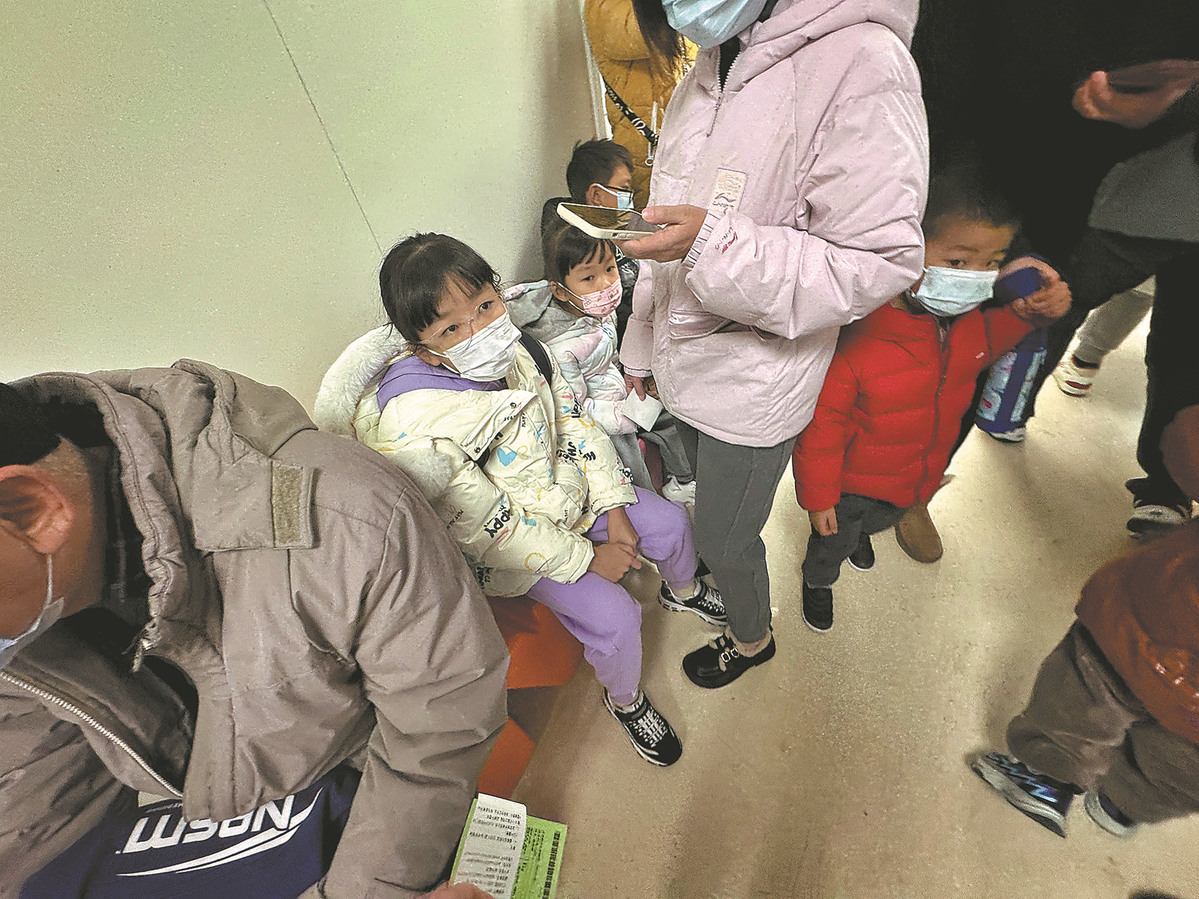Hospitals rise to challenge of respiratory illnesses


Frequent coughing
Zheng Haotian, 8, coughed frequently for a week and developed a fever. Common antibiotics and cough medication failed to ease his symptoms.
His grandfather said: "This is the third day he has been given fluids intravenously at China-Japan Friendship Hospital, and his fever has basically disappeared. If his blood test results return normal today, then we can probably stop such procedures.
"We initially went to a community hospital, but as it could not administer such infusions or prescribe special pediatric drugs, we came here. On the first day, we managed to arrange an appointment for 10 am, but ended up seeing the doctor at about 7 to 8 pm. As we live close to the hospital, we waited at home.
"We are now more familiar with the procedures, and the medical staff started administering an intravenous infusion this morning. It would be better if such services were available at the community center, which is bright and clean, and much less crowded."
Fan said that to ease pressure on the hospital, some patients are transferred to community clinics after being given fluids intravenously.
"But a series of preparations must be made, such as assessing the child's condition, clarifying whether the child should go there with a needle embedded in his or her arm after fluids have been administered, and whether the patient's family needs to take infusion medication from a higher-level hospital," she said.
Li Rui, head nurse at Peking University Third Hospital, said that on the busiest days, about 200 children are given fluids intravenously at the center each day. To cope with the increase, more chairs have been added and additional rooms allocated for such services.
"We nurses also need to tour infusion centers and hospital lobbies more frequently to watch for kids who display particularly severe symptoms, and give them prompt care," she added.
Doctors and nurses said soothing words from them are sometimes as important as the medications and therapies they prescribe to anxious patients.
Li said: "Most parents press us for an answer to the same question — when can their child see a doctor? They only feel calm when they talk with a doctor or nurse in person.
"A great deal of our work at present involves comforting parents, letting them know that it takes some time for an infection to clear up and for their kids to feel better, and that becoming stressed themselves will only make their children feel nervous."























